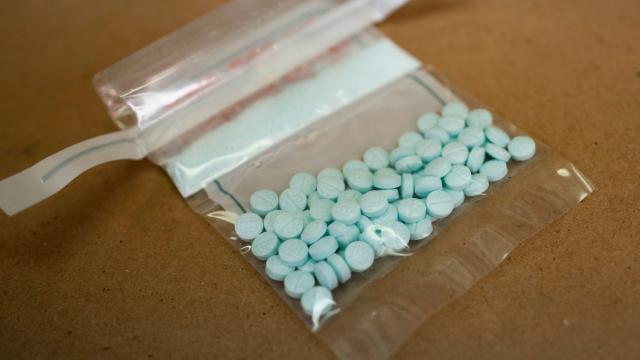Preliminary research out this week found that patients taking opioids for chronic pain can produce antibodies to the drugs, which could help explain some of the side-effects of long-term opioid use; these antibodies may also hamper efforts to create opioid vaccines, which scientists hope could treat opioid use disorder better than existing medications.
Researchers at the University of Wisconsin-Madison and the Scripps Research Institute in California took blood samples from 19 volunteers who had been taking opioid painkillers for chronic lower back pain. They then screened these samples for antibodies to opioids, by exposing the blood to proteins that were bonded with the commonly used opioids hydrocodone and oxycodone. In 10 of these patients, they found opioid-specific antibodies. Those with a higher dosage of opioid therapy had higher levels of these antibodies, while three control patients who weren’t taking opioids for their pain had none to very low levels.
The findings were presented this week at the American Chemical Society Fall 2020 Virtual Meeting. That means the results are based on preliminary data that hasn’t yet gone through peer review. The sample size of 19 patients is also very small, so these conclusions are far from settled science.
But if true, the authors say, these antibodies could be part of the reason why people who take opioids can develop symptoms such as hyperalgesia, where a person’s sensitivity to pain becomes so extreme that even normally harmless sensations became painful. One theory that the researchers are exploring is that opioids from these drugs can bond to carbohydrates in the body, creating things called advanced glycation end products (AGEs). These AGEs have been linked to chronic inflammatory conditions such as diabetes and clogged arteries, which also involve the immune system.
The authors also speculate that these native immune responses may decrease the effectiveness of potential vaccines for opioid use disorder. Some scientists, including the authors of the study, are hoping to create vaccines that can induce a temporary antibody response to the opioids we get from a prescription pill or illicit drug. The antibodies would cling to the molecules from these drugs when they enter the system, blocking them from getting into the brain and causing the effects associated with opioid abuse, such as an addictive euphoria. These vaccines, it’s theorised, would prevent craving symptoms better than other drugs now available, though they could be also used in conjunction with current medication-assisted therapy.
In the study, the volunteers produced IgM antibodies to opioids, which are short-term antibodies that usually last for a few weeks. But the vaccines these researchers and others are hoping to develop are trying to produce IgG antibodies, which typically last longer than IgM ones. The worry is that having this weaker native response will make it harder for the body to respond to the vaccine and produce a more effective antibody army.
Opioid vaccines aren’t universally seen as a good idea, with some harm reduction advocates arguing that the resources needed to develop them should be used to support other measures for helping people struggling with drug use, such as providing affordable housing and greater access to existing treatments. But if the authors are right, then even getting to the point where a vaccine for opioid abuse is effective will be harder than expected. Previous attempts to create vaccines for nicotine and cocaine dependence have also failed, though for different reasons.
“In order to confirm these results and help us understand who might be good vaccine candidates, we need to find a larger cohort of individuals, track their opiate use history, and figure out if this is a useful biomarker for subsequent vaccine protection against overdose and for clinical outcomes like hyperalgesia,” said study author Cody Wenthur, a professor in the UW-Madison School of Pharmacy, in a statement released by the university.
By studying these antibodies now, the researchers hope to better understand how to develop their vaccines moving forward.
